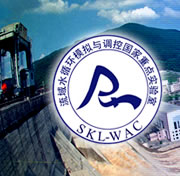《Agricultural Water Management》刊登“可交易水权制度中的相互监督:中国西北城市张掖的案例研究”
作者: Jun-Lian Zhang, Feng-Rong Zhang
刊物:《Agricultural Water Management》,2008年,95卷第3期,331-338页
关键词:交易成本;委托代理理论;灌溉面积
摘要: 可交易水权制度正成为提高水资源分配效率的重要手段。2002年,中国水利部在西北部城市张掖启动了试点项目,旨在建立一套包含可交易用水定额的全新的水权制度,并借助市场调节,对水量进行更高效的再分配。然而,这个制度并未很好的实施。对第一、二阶段数据的分析表明,相互监督能提高水量分配效率,改进贸易制度。对于地表水、地下水灌溉系统而言,促进相互监督的必要条件有:(1)分级管理制度;(2)明晰水权与定额;(3)用水定额总量控制与水资源总量控制;(4)供水量(或抽水能力)与用水定额之间的近似平衡。本文还对促进相互监督的制度要求进行了描述。
Mutual monitoring in a tradable water rights system: A case study of Zhangye City in Northwest China
Authors: Jun-Lian Zhang, Feng-Rong Zhang
Journal: Agricultural Water Management, Volume 95, 2008, Issue 3, pages 331-338
Key words: Transaction costs; Principal-agent theory; Irrigation area
Abstract: Tradable water right systems are becoming important ways to achieve distributive efficiency in water resources. In 2002, China’s Ministry of Water Resources initiated a pilot project in Zhangye City in Northwest China. The project was designed to established a new water use rights system with tradable water quotas with the hope of reallocating water resources more efficiently through market-based instruments, However, the tradable water right system is not well enforced. Based on both primary and secondary data, we find that mutual monitoring can improve the effectiveness of a water allocation and trading program. For both surface water and groundwater irrigation systems, the conditions needed to stimulate mutual monitoring include (1) a hierarchical management system; (2) well defined water rights or quotas; (3) control of total water quotas and water sources by the upper hierarchy; and (4) an approximate balance between the water supply or pumping capacity and the water quota. We describe also the institutional requirements for stimulating mutual monitoring.
原文链接:http://www.sciencedirect.com/science/article/pii/S0378377407002727
翻译:杨立疆;
审核:翟家齐

